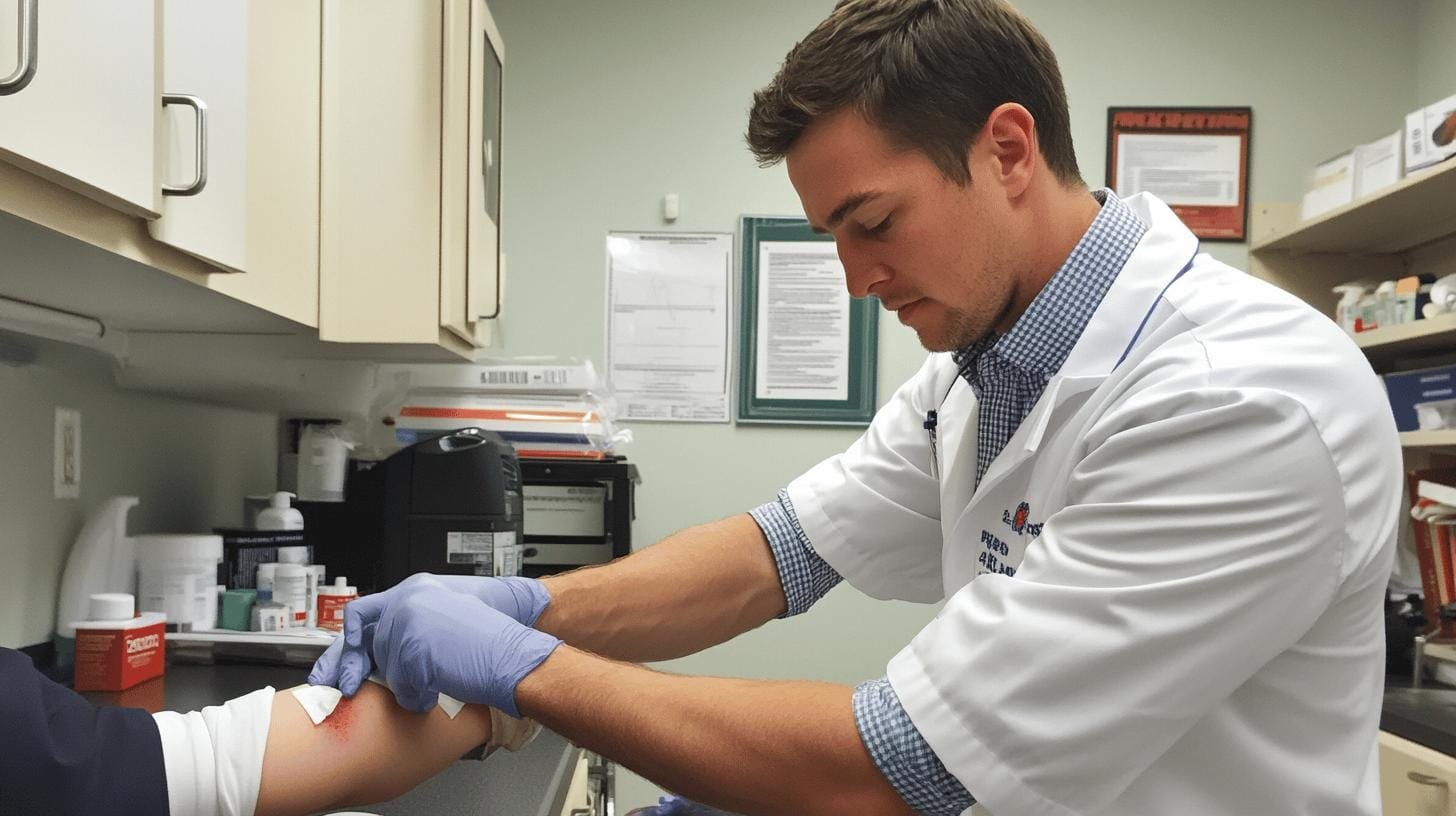
6 Ways Specialty Coffee Brands Build Loyalty and Stand Out
Discover how top specialty coffee brands create lasting loyalty through storytelling, sourcing, and community connection. Real tips from 6 industry experts.

Could caffeine, the world’s beloved pick-me-up, be quietly revolting against your body? While rare, caffeine allergies trigger symptoms like hives, itching, and swelling as your immune system attacks this common stimulant. Recognizing these caffeine-related allergic symptoms is critical for reducing health risks, as misidentifying them could lead to serious consequences. This article explores key caffeine allergy symptoms in adults and effective strategies for managing them. Understanding these indicators will empower you to take decisive steps if caffeine is the culprit of your recent health troubles.
Caffeine allergies, although rare, happen when the immune system incorrectly sees caffeine as a threat. This triggers the production of immunoglobulin E (IgE) antibodies. These antibodies cause histamines to be released, leading to allergic symptoms. Recognizing these symptoms is important for proper identification and management, as they often overlap with other conditions.
Some common allergic reactions include:
In severe cases, caffeine-related allergies may lead to anaphylaxis—a life-threatening condition needing immediate medical attention. Anyone experiencing trouble breathing, a rapid heartbeat, or sudden swelling should seek emergency help. Early recognition is crucial to prevent complications and get timely treatment.

Caffeine sensitivity involves how the body metabolizes caffeine, causing symptoms like insomnia, restlessness, and a fast heartbeat. These reactions stem from slower caffeine processing affecting the central nervous system. Unlike allergies, sensitivity doesn’t trigger an immune response. This is key because sensitivity symptoms depend on the dose and can vary due to genetics and health.
| Condition | Symptoms | Immune Involvement |
|---|---|---|
| Caffeine Sensitivity | Insomnia, restlessness, jitteriness | No |
| Caffeine Allergy | Hives, swelling, respiratory issues | Yes |
Managing caffeine sensitivity involves monitoring intake and adjusting habits to reduce consumption. Keeping a caffeine diary helps identify tolerance levels. Managing caffeine allergies requires avoiding caffeine completely to prevent immune-triggered reactions. Awareness of one’s body’s response to caffeine is crucial. Consulting healthcare professionals offers personalized guidance for safe and effective management.
Caffeine allergies can cause skin reactions like rashes, hives, and redness. The immune system mistakenly identifies caffeine as harmful, releasing histamines that lead to these symptoms. These skin issues can range from mild irritation to severe rashes, often with itching and swelling. Identifying caffeine skin rashes can require complete caffeine avoidance to stop further allergic reactions.
Strategies for managing skin reactions include:
Home-roasted coffee might benefit those with skin reactions to coffee. Unlike mass-produced coffee, which might have additives aggravating allergies, home-roasting allows control over the process. This can reduce exposure to allergens, making it a favored choice for those with caffeine-related skin issues.

Diagnosing caffeine allergies starts with reviewing the patient’s history to spot patterns indicating an allergic response. Allergy testing is key to confirming a diagnosis. Tests like skin prick or blood tests measure the body’s reaction to caffeine, proving an allergic response. Differentiating a true allergy from caffeine intolerance, which doesn’t involve the immune system, is crucial.
Accurate diagnosis is vital. Misdiagnosing can lead to unnecessary dietary changes or ongoing allergen exposure, risking health. Understanding allergies vs. intolerance ensures proper guidance on avoiding caffeine and managing symptoms, improving life quality.
To manage caffeine allergy symptoms, complete avoidance of caffeine is essential. This prevents allergic reactions, as even small exposures can trigger symptoms. For mild reactions, over-the-counter antihistamines can help with itching and hives. Besides medications, reading labels carefully helps avoid accidental caffeine intake.
Sublingual immunotherapy is a potential treatment for caffeine allergies. This introduces small allergen doses under the tongue to desensitize the immune system over time. Still under research, this technique promises to reduce sensitivity, offering hope for those affected.

Home-roasted coffee beans may suit those allergic to coffee beans. Roasting at home reduces exposure to common allergens found in commercial blends, which often include additives that trigger allergies. This process ensures a controlled, chemical-free environment. It offers the flexibility to try different roast levels, helping sensitive individuals find an option that minimizes allergic reactions without compromising their coffee enjoyment.
Identifying allergies to caffeine symptoms can be complex but essential for personal well-being. Recognizing differences between caffeine sensitivity and allergies aids in better management and lifestyle adaptations. Skin reactions and their mitigation strategies highlight how caffeine affects varying individuals. Diagnostic methods ensure proper identification, critical for distinguishing allergies from intolerances. Managing symptoms involves avoiding caffeine, using treatments from antihistamines to emerging therapies like sublingual immunotherapy. Home-roasted coffee presents a safer alternative for those with coffee allergies, reducing exposure to common allergens and offering personalized coffee experiences. Stay informed and enjoy a balanced approach to caffeine consumption.
A sudden sensitivity to caffeine can result from changes in metabolism, stress, or age. Identifying underlying medical conditions or lifestyle changes is crucial for managing this sensitivity.
Caffeine intolerance symptoms may include digestive issues like stomach upset, jitters, and increased heart rate. These occur without immune system involvement, unlike allergic reactions.
Caffeine allergies lead to symptoms like hives, itching, and swelling. Severe reactions, such as anaphylaxis, need immediate medical attention. Diagnosis through skin prick tests or blood tests is advised.
Caffeine allergy management involves avoiding caffeine and utilizing antihistamines for mild reactions. Severe cases might require epinephrine, while sublingual immunotherapy is an evolving treatment option.
Minimizing caffeine-related skin reactions involves avoiding caffeine, using hypoallergenic skin products, and keeping skin moisturized. Home-roasted coffee could reduce exposure to allergens found in commercial beans.

Discover how top specialty coffee brands create lasting loyalty through storytelling, sourcing, and community connection. Real tips from 6 industry experts.

Discover the ultimate showdown between two beloved coffee brewing methods: the French press and Chemex. Explore how each technique caters to distinct palates, with the French press delivering bold flavors and the Chemex presenting a bright, clean taste.

Unlock the secrets to brewing the perfect cup of coffee with our comprehensive guide on using a coffee scale. Discover how precise measurements enhance flavor and consistency while eliminating bitterness.

Discover how water temperature plays a vital role in brewing the perfect cup of coffee. This article delves into the ideal temperature range of 195°F to 205°F for optimal flavor extraction, enhancing the enjoyment of high-quality beans.

Discover the world of curated specialty coffee bundles, perfect for enthusiasts seeking quality and craftsmanship. This article explores the benefits of ethically sourced, small-batch beans from brands like Equipoise Coffee, offering diverse flavor profiles that elevate your brewing experience.

Discover the art of manual brewing to elevate your coffee experience! This article explores various techniques like pour-over, French press, and AeroPress, revealing how they enhance flavor and your connection to every cup.

Discover how to balance productivity and rest with the perfect cup of coffee. This article explores the art of brewing high-quality coffee to enhance your work routine while promoting mindful breaks.

Transform your morning coffee ritual into a mindful experience! This article explores the importance of slowing down to appreciate high-quality beans, ethical sourcing, and small-batch roasting.

Discover the world of specialty grade coffee and what sets it apart for true enthusiasts. This article delves into the strict standards, exceptional flavors, and unique origins that define high-quality brews.